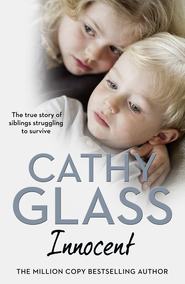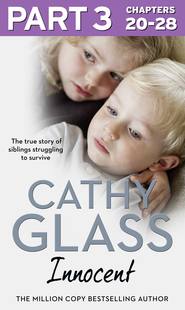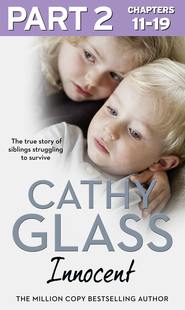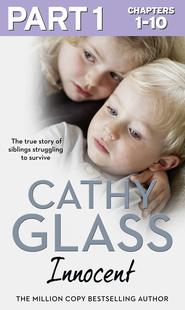По всем вопросам обращайтесь на: info@litportal.ru
(©) 2003-2024.
✖
Finding Stevie: A teenager in crisis
Настройки чтения
Размер шрифта
Высота строк
Поля
‘Yes, so when are you thinking of going?’ Verity asked.
‘I dunno, when I want to. After school maybe, or at the weekend.’ He shrugged.
‘OK, but phone Gran first and tell her. Also let Cathy know, otherwise she will be expecting you home here.’
I would have liked some more precise contact arrangements – days and times – but Stevie was in care under a Section 20 so there was no court order setting out specifics, and teenagers in care are notorious for popping home when the mood takes them.
‘Perhaps you could liaise with Mr and Mrs Jones?’ Verity suggested to me. ‘They have your details, and theirs are on the Essential Information sheet.’ All of which was quite normal under a Section 20.
‘Can I go now?’ Stevie said, tucking his phone into his pocket.
‘Is there anything else you want to talk to me about?’ Verity asked.
‘No.’
‘OK, I’ll say goodbye to you when I leave.’ Stevie nodded and left the room. Verity wasn’t just being polite; as Stevie’s social worker she would want to see his bedroom as well as the rest of the house.
I waited until he was out of earshot before I said, ‘I am worried about Stevie’s safety. Did you know he’s been going to nightclubs?’
‘I didn’t until his grandparents told me,’ Verity said. ‘The boundaries have been a bit lax at home, but you can understand why. At their age it’s been a struggle bringing up three grandchildren.’
‘They’ve done well.’
‘It started going pear-shaped with Stevie about a year ago. Puberty, and not feeling comfortable in his body. His grandparents haven’t been able to support him with his gender identity. It might help him to have a referral to a clinic that offers a gender-identity development service for young people. They can prescribe hormone treatment if necessary.’
‘Really? Isn’t he a bit young for that?’
‘They’re not the hormones taken by a person who is transitioning – wanting to change sex – but they stop puberty to give the young person a chance to think about their gender identity.’
‘I see, I’ve got a lot to learn,’ I said.
‘So did I, but more young people are questioning their gender, so the social services, schools, health care and society in general is having to catch up. I’m not saying the treatment is necessarily right for Stevie, but it could be an option. It would need his grandparents’ consent, as they are his legal guardians, so we’ll have to see.’
Verity then ran through the Essential Information Form, which included brief details of Stevie’s family, ethnicity, religion, education, health, any behavioural problems and other basic information I would need to look after him. This came with the Placement Agreement Form that I had to sign. Verity gave me a copy of both sets of forms, which I clipped into my fostering folder. I started a new folder for each child. I then showed Verity around the downstairs of the house first and then upstairs, ending with Stevie’s room. ‘Verity is here,’ I said, tapping on his door. ‘Can she come in?’ Privacy is so important to young people.
‘Yes,’ came his reply.
I left Verity with Stevie. It’s usual for the social worker to spend some time alone with the child or young person in case there are any issues they want to discuss that they might find uncomfortable with the foster carer present. I looked in on Paula, who was still in her room. ‘Verity is going soon,’ I said. ‘She’s just saying goodbye to Stevie.’
‘OK, I’ll come down when she’s gone.’
Paula knew she could go downstairs any time, although it wasn’t appropriate for her to sit in on some of the meetings that took place in our living room, including Verity placing Stevie. Fostering is intrusive and disruptive to the foster family and it’s often this that puts off prospective carers. Foster carers have regular visits from the child’s social worker and the carer’s supervising social worker – both of whom look around the house at each visit. There are also visits from many other professions involved in the case, including the educational psychologist, the Guardian ad Litem and the child’s solicitor if the case is going to court, the health visitor, LAC nurse and sometimes the child’s family. In addition, the child’s reviews are often held in the carer’s home. It can seem like a never-ending procession of visitors, and of course it’s disruptive for the child in care as well, who just wants to be loved and to lead a normal family life.
Verity was with Stevie for about ten minutes and then I saw her out. Paula came down for a snack and drink to see her through to dinnertime, and I persuaded Stevie to come down too. He and Paula sat at the table in the kitchen-diner while I was in the kitchen. I could see and hear them from where I worked and Stevie was talking really nicely to Paula, asking her about college, what she wanted to do when she left and whether she minded fostering. Although aged fourteen, Stevie could pass for much older. He was tall and there was a sophistication about him, which Paula didn’t have.
‘You’ll meet my brother Adrian and my sister Lucy later,’ I heard Paula tell him.
‘Do all the family have dinner together?’ he asked. ‘We did at Gran’s.’
‘Yes, if everyone is in.’
‘I’d better get ready then,’ he said. Having finished his snack, he stood.
‘Stevie,’ I said, going into the dining area, ‘we usually have dinner around six o’clock, and you’re fine as you are.’ For I didn’t really know what he meant by ‘get ready’.
‘Oh no, I need to look my best for when I meet Adrian and Lucy – first impressions and all that.’ With a flick of his wrist he left. Clearly, looking after Stevie was going to be a whole new experience for us all.
Chapter Five
Secrets (#ulink_7adb583a-0f63-5d42-9749-a2ae2163e446)
Stevie stayed in his room until I called everyone for dinner. Adrian, Lucy and Paula were already seated at the table when Stevie (having been called twice) arrived. I think he’d waited until everyone was there so he could stage an entrance. Although he was wearing the same clothes – blue jeans and a yellow sweater – he now had a light blue silk scarf tied loosely around his neck, had painted his nails bright red and was wearing a lot more make-up.
‘This is Adrian,’ I said, introducing him to Stevie.
Adrian had never experienced any doubts about his gender and had a long-standing girlfriend, Kirsty. He could also be a bit conservative, which was no bad thing, but to his credit he just said, ‘Hello, Stevie, nice to meet you.’
‘And you.’ Stevie smiled charmingly.
Lucy on the other hand didn’t have the same reservations as Adrian, and sometimes there was no filter on her thoughts. ‘You’re never called Stevie!’ she cried, horrified, staring at him.
His face fell. Clearly he had wanted to be noticed, but in a positive way, and it was clear from his expression this wasn’t the reaction he’d anticipated. I must say I’d expected better from Lucy. I’ve tried to bring up my children to be non-judgemental and accepting of differences whether they are race, religion, physical or – as with Stevie – gender related.
I threw her a warning glance, which she either didn’t see or ignored.
‘You’re not really called Stevie, are you?’ Lucy persisted dramatically. ‘Please tell me it’s not true!’
The poor lad looked mortified and I was about to tell Lucy off when I realised what she meant. ‘Oh, Lucy. Stop it. Shall I tell him or will you?’
‘You can.’ She laughed.
Stevie was looking at me, worried and confused, as well he might. ‘Many years ago Lucy came to me as a foster child and stayed,’ I explained to him. ‘I wanted to adopt her, but her social worker at that time was against it. She felt she should live with a family that reflected her ethnicity.’ (Lucy has dual heritage, and I tell her story in Will You Love Me?). ‘Thankfully we had a change of social worker and the adoption went ahead. That first social worker was called Stevie. I had forgotten. It’s no criticism of you – Lucy just didn’t get on with her.’
Stevie gasped with relief and managed a smile. ‘My grandparents call me Steven, but I prefer Stevie.’
‘That’s fine,’ I said.
‘Can we eat now, Mum?’ Adrian asked patiently. ‘I’m starving.’
‘Yes, of course.’
I served dinner and everyone tucked in so all that could be heard for some minutes was the chink of cutlery on china. Lucy was sitting directly opposite Stevie and I saw her keep looking up at him. I had a good idea what she was thinking even before she said it.
‘Stevie, why are you wearing all that make-up?’ she asked at length, not rudely, but it was a forthright question, and probably one he’d heard before.
He didn’t take offence but, setting down his cutlery, he said, ‘It’s a statement about who I am. I see myself as gender-fluid, which means I haven’t got a fixed gender. That’s not to say I’m gay, although it’s possible, I haven’t decided yet. I’m trying to find out if I want to live my life as male or female, so at present I’m gender-fluid.’ I thought that, for a fourteen-year-old, he was very articulate in matters that deeply affected him.
‘So you’re making up your mind, right?’ Lucy asked him.
Другие электронные книги автора Cathy Glass
Innocent




 0
0











